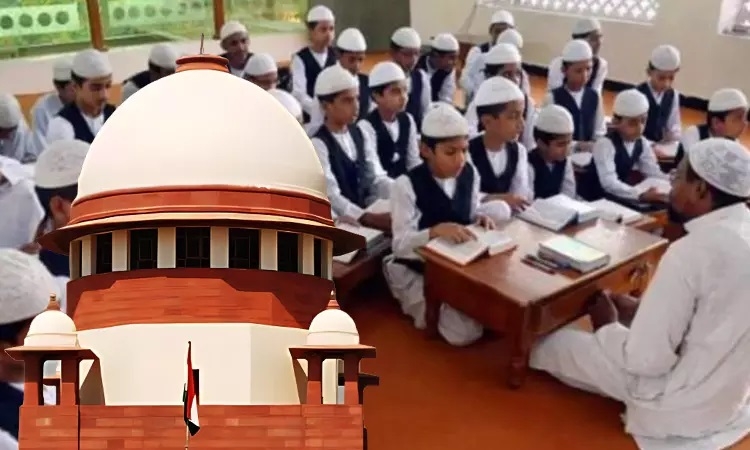SC upholds UP MADARASA LAW
06 Nov 2024 10:48:59

NEW DELHI :
IN A major relief to madarasas
in Uttar Pradesh, the Supreme
Court on Tuesday upheld the
constitutional validity of the
2004 State law regulating the
Muslim minority educational
institutions and said a statute
cannot be struck down on the
ground of secularism.
The significant ruling, which
overturned an Allahabad High
Court decision, would benefit
over 17 lakh students studying
in over 16,000 madarasas
recognised by the Uttar Pradesh
Board of Madarasa education
under the State law.
The High Court had asked
for the closure of such institutions and directed the
State Government to accommodate students in a formal
schooling system.
The top court said a statute
could be declared ultra vires on
two grounds -- being beyond
the ambit of the legislative competence or violating fundamental rights or any other
Constitutional provision.
A
bench comprising Chief Justice
of India D Y Chandrachud and
Justices J B Pardiwala and
Manoj Misra therefore set aside
the High Court verdict quashing the 2004 law on the ground
that it was violative of the principle of secularism. MinervaMillscaseof1980,declaredtwo
provisions of the 42nd Amendment,
which prevented any constitutional
amendmentfrombeing“calledinquestion in any court on any ground” and
accorded precedence to the Directive
Principles of State Policy over the fundamental rights of individuals, as
unconstitutional. Article 31C protects
a law made underArticles 39(b) and (c)
empoweringtheStatetotakeovermaterialresourcesofthecommunity,including private properties, for distribution
to subserve the common good.
The topcourt hadheard 16 petitions,
including the lead petition filed by the
Mumbai-based Property Owners’
Association (POA) in 1992.
The POA has opposed Chapter VIIIA of theMaharashtra HousingandArea
Development Authority (MHADA) Act.
Inserted in 1986, the chapter empowers State authorities to acquire cessed
buildings and the land on which those
are built if 70 per cent of the occupants
makesucharequestforrestorationpurposes.
TheMHADAAct was enacted inpursuance of Article 39(b), which is part of
the Directive Principles of State Policy
and makes it obligatory forthe State to
create a policy towards securing “that
theownershipandcontrolofthematerial resources of the community are so
distributedasbesttosubservethecommon good”.